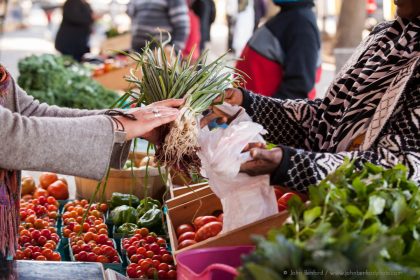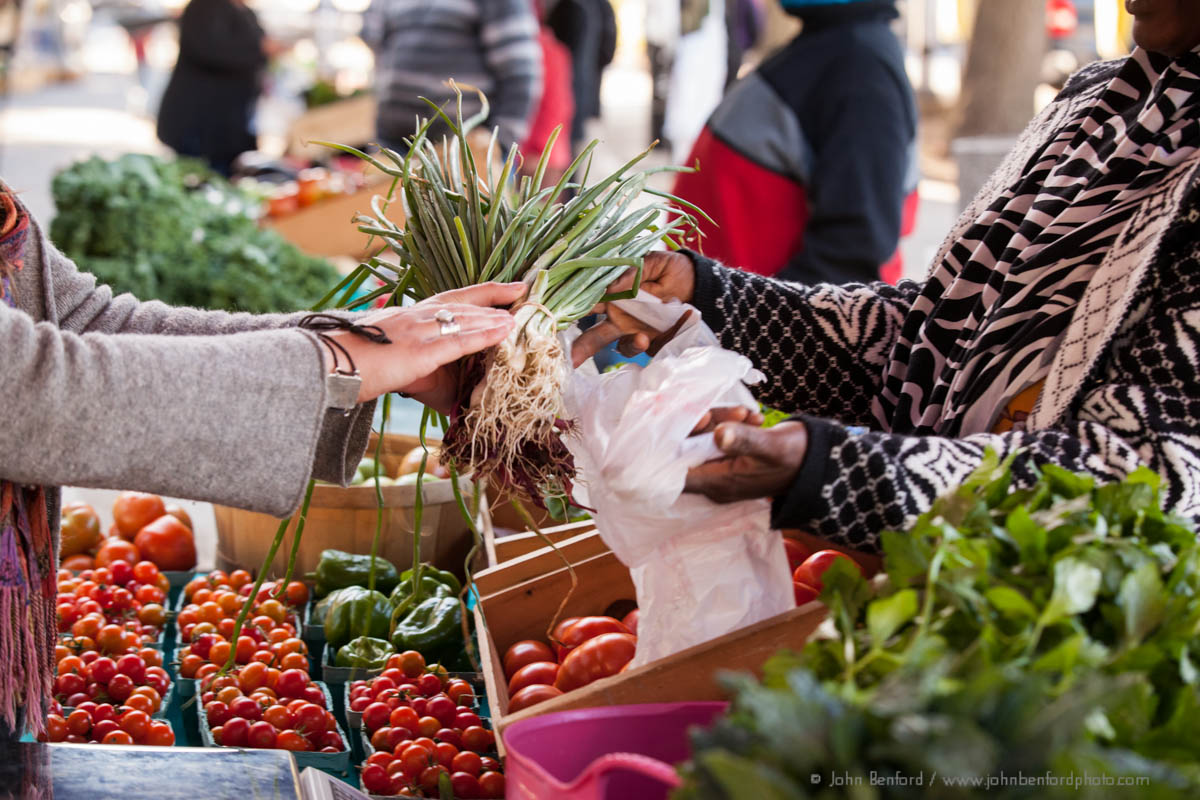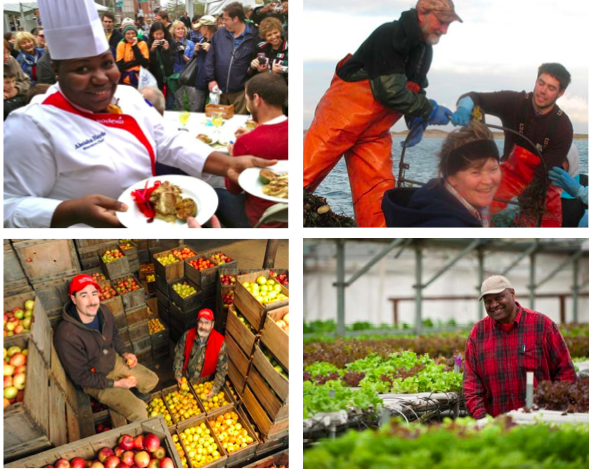
New Hampshire
 The NH Food Alliance reflects on the tremendous amount of progress they have experienced in the Granite State food system in 2015.
The NH Food Alliance reflects on the tremendous amount of progress they have experienced in the Granite State food system in 2015.
Shared the Viability Initiative
The NH Food Alliance launched a comprehensive initiative focused on farm, fish, and food enterprise viability (Viability Initiative) in November 2015. As the first strategic effort of the NH Food Alliance, the Viability Initiative is the result of over two years of building our network, listening to the concerns and hopes of hundreds of NH residents, and synthesizing dozens of food system reports. The common thread emerging from this work was that thriving local businesses are at the heart of our food system and can create cascading benefits for us all, including our most food insecure residents.
The Viability Initiative serves as the common agenda for the growing NH Food Alliance Network, and its four opportunity areas support a food systems approach to strengthening enterprise viability: education, market development, food accessibility, and land and sea resources.
A Viability Working Group will convene in early 2016 with the purpose of advancing the Viability Initiative. The working group will identify key players who can take action on implementing goals and approaches, and monitor the progress of various initiatives and collective actions across the state.
Enhanced communications
Working with a consulting company to finalize the design, NH Food Alliance launched a new website in early November 2015. They also started a Facebook page, a Twitter account, and a monthly newsletter to keep the network informed and provide various avenues for making new connections.
Strengthened relationships
NH Food Alliance attended workshops and meetings around the state, and hosted their first annual Statewide Gathering at Labelle Winery, in Amherst, New Hampshire, interacting with a diverse group of people. They continued to engage and grow the NH Food Alliance by expanding leadership and participation in the Strategy and Process Teams. The teams consist of over 80 people who represent the diverse breadth of the food system, from the NH Farm Bureau and the NH Department of Agriculture, Markets, and Food to Healthy Eating and Active Living and the NH Food Bank.
NH Food Alliance looks forward to the positive momentum continuing in 2016, with many more opportunities for connectivity and on-the-ground successes! As the New Year begins, the NH Food Alliance will begin to advance the Viability Initiative and continue to engage the network.
Massachusetts
Massachusetts Local Food Action Plan
Massachusetts ended 2015 with a huge accomplishment! The Massachusetts Local Food Action Plan was unanimously accepted by the MA Food Policy Council on December 10. With contributions from more than 1,500 stakeholders in agriculture, public health, fishing, and other sectors, the plan lays out goals and recommendations to strengthen the state’s food system. Many of the stakeholders involved in the planning process have come together to form the Massachusetts Food System Collaborative to oversee implementation of key items in the plan and work closely with the Food Policy Council.
“It is vital that we find new ways to support our growing agricultural industry in a changing world and address issues of food insecurity and poor nutrition,” said Governor Charlie Baker. “Through the recommendations in this plan, we will continue our efforts to support Massachusetts agriculture and increase access to healthy food for all of our state’s residents.”
“The Massachusetts Local Food Action Plan will help the state create policies to help farms and businesses thrive and improve citizens’ access to fresh, local food,” said Energy and Environmental Affairs (EEA) Secretary Matthew Beaton. “The Baker-Polito Administration is committed to supporting the Massachusetts food system and looks forward to the implementation of recommendations within the Plan.”
Other Highlights of 2015
New Entry Sustainable Farming Project partnered with Mass Farmers Markets and the Beginning Farmer Network of Massachusetts to launch a “Choose Fresh and Local” license plate. They have met their minimum number and the plates will be printed! Proceeds from the plates will support local farmers’ markets and beginning farmer training programs. Look out for these plates on the road in summer 2016 and consider signing up for your own!
Massachusetts hosted many conferences this year such as Harvest New England Agricultural Marketing, Farm to Institution New England, MA Farm to Cafeteria, MA Sustainable Communities and Campuses, and MA Green Careers. Of note was the food security-focused Food for Good Conference that was held in October. Inspired by Congressman James McGovern’s tireless advocacy on behalf of lower-income Americans who struggle to meet their families’ basic nutrition needs every day, this gathering brought partners from across the state together, strengthening linkages and strategies to increase our capacity to “provide ample, healthy food for our communities.”
Food Solutions New England partners created space and a platform for A New England Food Vision – 50 by 60 across Massachusetts. For example, the Sustainable Business Network of Massachusetts (SBN) featured the Vision at its 2015 Local Food and Specialty Crop Trade Show, Annual Sustainability Leadership Summit, and 6th Boston Local Food Festival. As a follow-up to the MA launch of A New England Food Vision in 2014 at the Boston Local Food Festival, SBN and Food Solutions New England launched the New England Village, an activity area at the Boston Local Food Festival last September. The Village, featuring vendors from all six New England states, will be a “zone” presented annually in the Festival’s programming! SBN has now included 50 by 60 in its vision statement!
The Boston Public Market opened in July as a permanent, “year-round, indoor market featuring fresh, locally sourced food brought directly to and from the diverse people that make up Massachusetts and New England.” It is the only locally sourced market of its kind in the United States. It is located at 12 Marshall Street near historic Faneuil Hall and Quincy Market in Boston.
In April, the United States Department of Agriculture National Institute of Food and Agriculture awarded the Massachusetts Department of Transitional Assistance (DTA) a grant through the Food Insecurity Nutrition Incentive (FINI) Grant Program. The $3.4 million federal grant will provide DTA the opportunity to expand its Healthy Incentives Pilot into a Healthy Incentives Program that will serve participants of the Supplemental Nutrition Assistance Program (SNAP) statewide.
With this foundation set in 2015 by contributions across the state, Massachusetts is poised to have an amazing year in 2016 of strategic and sustained effort to transform our food system and its regional impact and connectivity!




